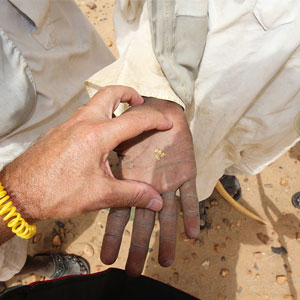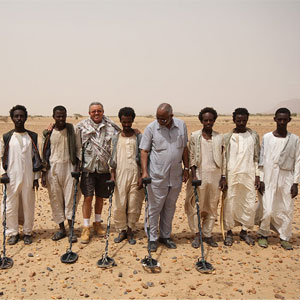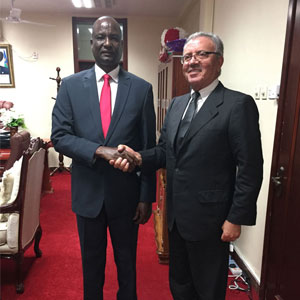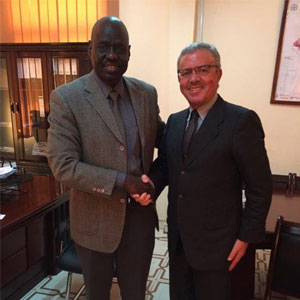Perché Sud Sudan
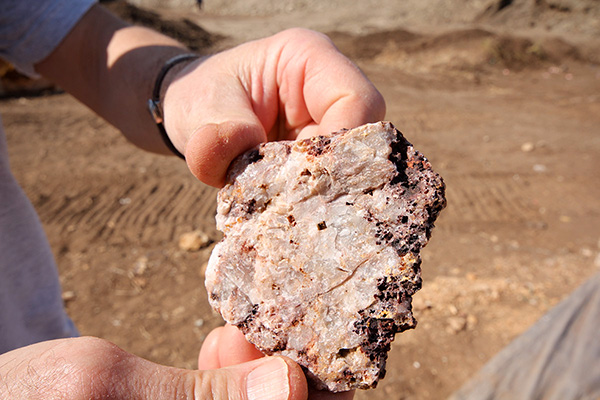 Secondo l’organizzazione umanitaria internazionale Cordaid, in Sud Sudan si contano almeno 80 diversi siti minerari (i più importanti sono nelle regioni del Central Equatoria e dell’Eastern Equatoria), tutti con presenza di oro di buona qualità. Si tratta quasi sempre di minerale a grana grossa, l’ideale per il basso impatto ambientale e per la sicurezza nei processi di lavorazione, poiché non richiede l’uso di cianuro o mercurio né per l’estrazione né per la purificazione.
Secondo l’organizzazione umanitaria internazionale Cordaid, in Sud Sudan si contano almeno 80 diversi siti minerari (i più importanti sono nelle regioni del Central Equatoria e dell’Eastern Equatoria), tutti con presenza di oro di buona qualità. Si tratta quasi sempre di minerale a grana grossa, l’ideale per il basso impatto ambientale e per la sicurezza nei processi di lavorazione, poiché non richiede l’uso di cianuro o mercurio né per l’estrazione né per la purificazione.
Il Paese è conosciuto nel mondo per la presenza di numerosi giacimenti peatroliferi, ma anche l’oro figura da sempre come una risorsa importante tra le voci della locale economia, che però la sfrutta in forme marginali ed estemporanee. Tant’è che l’attività estrattiva ad oggi coinvolge solo circa 60mila persone, mentre potenzialmente potrebbe dare sostentamento, a vario titolo, a mezzo milione di persone.
Con il varo della legge sull’industria mineraria nel 2012, la Repubblica del Sud Sudan ha dichiarato illegali le attività estrattive artigianali, se condotte senza licenze ministeriali. Da quel momento, inoltre, il Governo ha promosso gli investimenti nell’esplorazione mineraria e nello sviluppo di progetti di sfruttamento, puntando in particolar modo ad attrarre capitale e know how straniero attraverso una politica fortemente agevolativa, che chiede in cambio l’impegno in opere infrastrutturali, sociali e sanitarie e il rispetto dei principi di sostenibilità.
